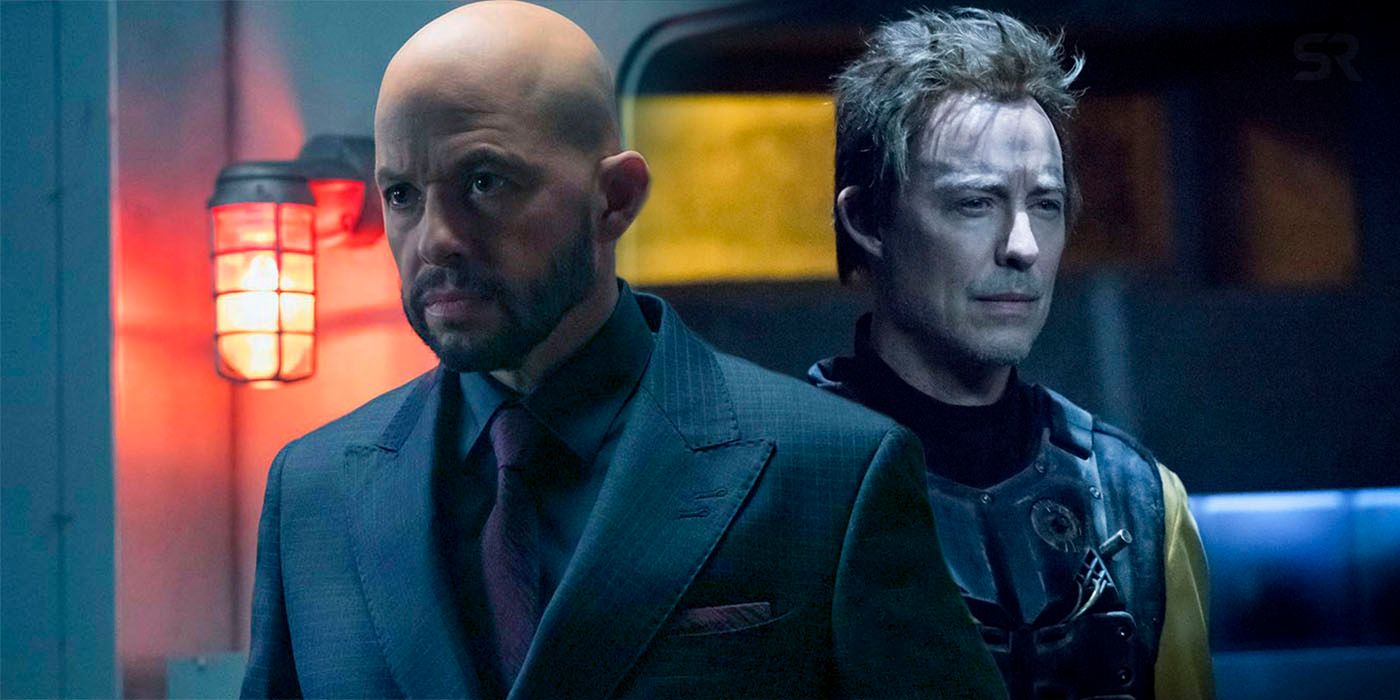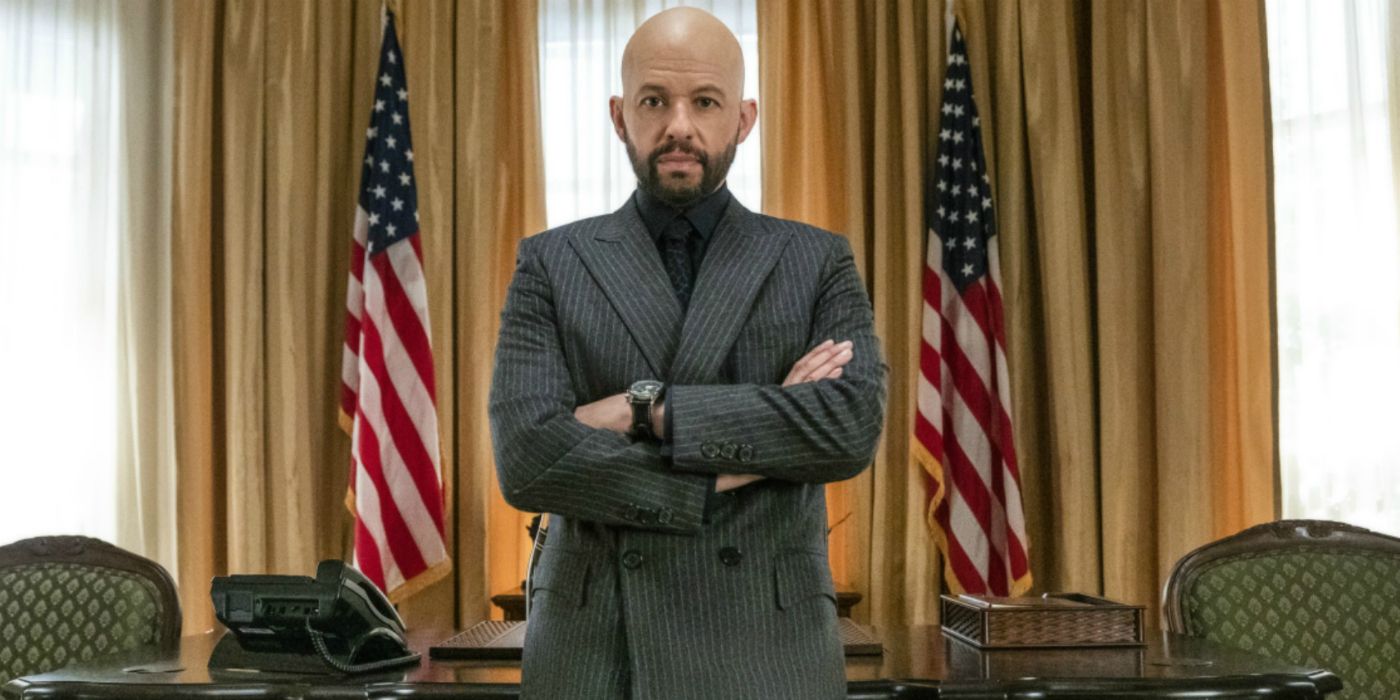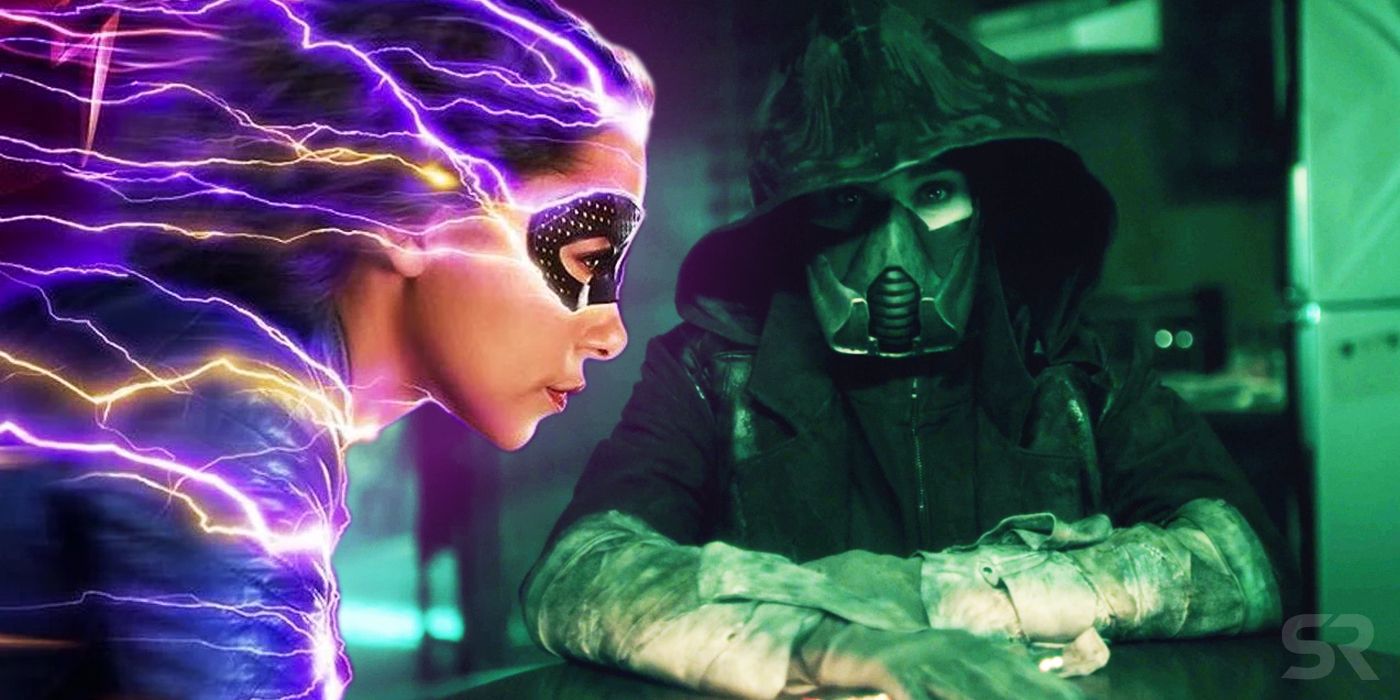The Flash season 5 and Supergirl season 4 both made the same mistake. There's a sense in which these seasons were two of the best, returning the Arrowverse shows to their core concepts. In the case of The Flash, that meant an intriguing time travel mystery with very personal ramifications for Barry Allen, as he found himself getting to know his future daughter, Nora. For Supergirl, it meant embracing the series' theme of social justice, with the repealing of the Alien Amnesty Act and a powerful critique of prejudice.
But both shows attempted to play a bait-and-switch with viewers. For Supergirl, season 4 was ostensibly about the Children of Liberty; in reality, the plot turned out to be Lex Luthor's latest masterplan, complete with a Harun-El "clone" of Supergirl. For The Flash, the story was initially about a speedster from the future helping track down a serial killer; it was transformed by a second serial killer from the future, and the revelation that everything had been manipulated by Eobard Thawne.
But oddly, the similarities between the two shows go a little deeper. The truth is, in narrative terms, Supergirl season 4 and The Flash season 5 both made the exact same mistakes.
The Twists Were Obvious
The first problem is that the twists weren't hard to see coming. In the case of Supergirl, the season 4 premiere began with the shocking news that Luthor's trusted chief of security, Mercy Graves, was the one responsible for his imprisonment. Anyone familiar with the Superman mythos immediately began to suspect that Lex was in jail because he wanted to be there, and that season 4 would reveal he was the real mastermind behind the Children of Liberty. That was pretty much confirmed in November last year, when The CW revealed that Jon Cryer had been cast as the Arrowverse's Lex Luthor. Meanwhile, the Red Daughter subplot had been teased in the season 3 finale, so viewers kept waiting to see just how Supergirl's doppelganger would fit into Lex's plans. Even the president's treachery was signposted from the start.
The same was true of The Flash. The idea of a Cicada legacy was teased as far back as "Memorabilia," with astute viewers speculating that future Cicada was actually Grace Gibbons. The mid-season finale, which revealed Eobard Thawne's alliance with Nora West-Allen, immediately changed the dynamic; he obviously had an agenda, and the mystery of Thawne's plan was far more interesting and exciting than the Cicada A-plot.
In both cases, this meant that the shows were spending a lot of time on plots and sub-plots that viewers just weren't invested in, some of which didn't even ultimately pay off all that well. The issue was less pronounced with Supergirl, but for The Flash it meant that several episodes felt like little more than "filler," barely contributing anything to the overall narrative and direction. The quest for a Meta Cure became one particularly irritating issue.
The Final Ideas Were So Much More Effective
The strangest aspect of this, though, is that in both cases the most interesting ideas were consigned to B-plots, and only resolved towards the end of the season. There's a long tradition of "mirror-image" super-villains, bad guys who are really distorted versions of the heroes themselves, and The Flash tapped into that in an absolutely fascinating way. The truth is that Nora and Cicada II were mirrors of one another, with almost identical plots. Both girls wrestled with the legacy of someone they loved and admired, in Nora's case her father, in Grace's her uncle. The two characters were even linked by a psychic bond that was created back in "Memorabilia." Cicada wasn't a Flash nemesis; she was his daughter's arch-foe.
This was frankly far more interesting than anything the series did with the first Cicada, Orlin Dwyer, who was only really important as setup for Grace. Making matters worse, Grace was a far more formidable enemy anyway. Cicada I soon lost his luster as The Flash season 5's big bad, defeated countless times by Team Flash, and often barely escaping. In contrast, Cicada II packed a level of raw power that enabled her to effortlessly beat Team Flash time and again, and they were the ones on the back foot. In dramatic terms, it was just so much more effective.
That wasn't the only problem with The Flash season 5, either; in truth, this season was all about Thawne, a shadowy background force manipulating Team Flash to his own ends. But Thawne was, by necessity, relegated to a background role until the season finale. That basically meant that season 5 felt like nothing more than essential groundwork for the impending "Crisis on Infinite Earths" event.
Meanwhile, the Red Daughter sub-plot was set up as vital by the season 3 finale, and yet it simply bubbled in the background for most of the season. Viewers were constantly left wondering just when Red Daughter would make her presence known, and the delay just felt irritating. The introduction of Lex Luthor didn't help, simply because Cryer's performance was absolutely stunning. He played a definitive version of Luthor, effortlessly dominating every scene in which he appeared, immediately making his mark on the franchise. Cryer was perfectly cast, and the show's quality improved dramatically as soon as he made his appearance, but it shouldn't have taken so long.
There's nothing wrong with a series attempting to have a major left-turn twist; the issue for both Supergirl and The Flash is that the twists were well-signposted far in advance, and far more interesting than the plots that came before them. The challenge facing future showrunners is a simple one; make the main thing the main thing. Identify the central focus, the most interesting idea in the series, and ensure that everything that happens revolves around that. If you have an excellent piece of casting, like Cryer's Luthor, then make sure he stands front and center in the entire plot. If your previous season set up a major new direction, make sure it's the next season premiere that begins to deal with that, not the next finale. And don't waste time treading water when you have really cool ideas in the works.



